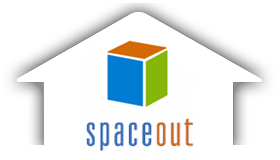The number of Queensland homes and businesses repossessed by banks has reached record levels.
Qld Justice Department figures for August indicate that lenders lodged nearly 200 claims to repossess homes & businesses as record numbers of owners default on mortgage payments. The figure of 193 repossession claims, is the highest monthly total since the early 1990s when records began.
 And this figure is considered to be just a portion of the repossessions actually taking place as many cases don’t appear before court, with many property owners negotiating with banks to put their property up for sale to repay the debt.
And this figure is considered to be just a portion of the repossessions actually taking place as many cases don’t appear before court, with many property owners negotiating with banks to put their property up for sale to repay the debt.
With the recent increase in the official cash rate (the RBA increased if from 4.5 to 4.75% on Tuesday), and banks jumping to increase their rates (CBA shocked mortgage holders by increasing their rate by 0.45%), and with rates expected to increase in the coming months, the repossession rate is likely to get a whole lot worse.
Mortgage Holders struggling to meet repayments should organise hardship arrangements with their lender and consider contacting a financial advisor or counsellor for help.
Another option to keep the banks at bay, supplement your income, and help you to meet your mortgage repayments might be to consider renting out spare or unused space in your home or business. If you have a spare bedroom, garage or shed, you may be able to rent it out and earn a couple of hundred extra dollars a month.
The recently released Self Storage Association of Australia (SSAA) Demand Study for 2010 has (as per usual) highlighted loads of fascinating statistics about how Self Storage is used in Australia.
However some of the most interesting changes over the 2008 report highlight the dramatic increase in opportunities for Self Storage Operators to use the web to market and promote their business online – to increase enquiries and actually make online sales.
What do your customers want Online?
The SSAA asked both Potential and Existing storers to indicate what features they would like to see on a self storage facility’s website. Some of the most requested functionality include…
- List of units available & prices (86% for potential customers vs. 75% for existing customers)
- Ability to pay their account online (64% for potential customers vs. 54% for existing customers)
- Ability to see their account status online (62% for potential customers vs. 53% for existing customers)
- Ability to book a unit & pay a deposit online (59% for potential customers vs. 43% for existing customers)
Nb. These figures represent the percentage of respondents indicating a feature was desirable.
With the steady increase in eCommerce over the last 5-10 years, web users are not only becoming more confident with using the web for online sales and enquiries – they are actually expecting theses services to be available. There is a very real risk that facilities not offering these types of services will be missing out on sales and losing market share to those that do.
Relatively few Self Storage websites are currently offering details of current listing availability and prices, and the main reason for this seems to be the effort associated with keeping this type of data up to date. An obvious (and simple) solution is to hook your website into the software that you use to manage your facility, then you don’t have to do anything extra to keep your unit availability information on your website current.
StorMan’s range of self storage software already has modules that integrate with your website, automatically update you space availability, allow customers to view their account status, pay a storage invoice, or book (reserve) a space and pay a deposit – all from your own website.
Promoting your website
Having a website that offers the types of online services that storers are looking for is an excellent start – but unless they are able to find your website in the first place, it is of limited real value.
In a nutshell, Search Engine Optimisation (SEO) describes a process for getting your website found online. Activities designed to Improve your rankings in the search results, Increase traffic to your site, and maximise your online sales and enquiries, are every bit as important as having a website in the first place.
The two most important elements that are required for good rankings are:
- Good Quality, Unique, Keyword Rich Content – The content on your website should describe the services you offer, using the “language” that your customers are likely to search for, and be informative as well as useful to your customers (and potential customers).
- Links to your site – Third party sites that link to you (especially if they are in the Storage niche) are critical to achieve good rankings. You should strive to get links from Industry sites (such as Self Storage Associations, like the SSAA), Business Directories, Industry related Listing services (such as SpaceOut), and possibly even your competitors.
There is a HUGE amount of information about SEO online, so you can find out a lot more about it through a Google search. However, the most effective SEO techniques and strategies are constantly changing, and there is a great deal of old, out of date and inaccurate information available online.
To ensure you are really optimising your site (and not actually harming it), we recommend that you talk to a professional SEO to at least assist you with development of an Search Engine Optimisation strategy.
Local Search
The nature of the self storage industry pretty much guarantees that people looking for storage space, will mostly be looking in a specific area. So when they are searching online they will most likely include a locality in their search query (e.g. “Self Storage Bathurst”, or “Self Storage Prices Sydney”, or very often even specific queries like “Space for Rent Footscray”).
Again, listing with online services like SpaceOut (which has a very strong “local” focus) is a good way to improve your visibility for local search queries. Also, forming alliances, and cross-linking with other storage facility websites in other localities (who are not your direct competitors) can also be a very effective mechanism to help raise your own local search profile.
Offering the types of online services that your existing and potential customers are asking for (and may soon be demanding) and ensuring that you are doing whatever you can to maximise the exposure of your website, are critical steps to make sure that your business not only survives, but thrives in the increasingly competitive future online.
 Car parks are the ultimate cash cow –
Car parks are the ultimate cash cow –
milking thousands of Australians every day for their hard earned cash.
Channel Nine’s A Current Affair program ran a story tonight about the horrendous prices being charged by Parking Stations throughout Australia.
Airport Parking, Hospital parking, and especially CBD parking stations are charging exorbitant prices – adding a huge extra expense to your day out.
In Sydney you will need to pay up to $40 for 4 hours parking and in Brisbane you should expect to pay up to $61. Melbourne will set you back $54 for a 4 hour stay.
To make it worse, some parking stations highlight “special offers” from just $2 or $5. But unless you are very careful to read the fine print and abide by strict conditions, it is quite possible you will be slugged for between $30 and $50 for parking just 1-2 hrs.
Airports and Hospitals are also notorious for their parking fees, and because in many cases there is no other choice but to pay for parking, people are often forced to cut their visits short 0 – in order to9 try and reduce the costs.
 If you are looking for casual parking, sites like CarParking.info are available to help you to find Cheap Parking. They also offer a Free iphone App which you can use while you are out and about amd on the prowl for cheap parking.
If you are looking for casual parking, sites like CarParking.info are available to help you to find Cheap Parking. They also offer a Free iphone App which you can use while you are out and about amd on the prowl for cheap parking.
But of course, if you are looking for cheap longer term parking, you can search for Parking Spaces for rent on SpaceOut.com.au
See the ACA Story – Parking Fury
 Investors and home owners with capital tied up in residential property are currently being hit with a double whammy of increased interest rates and decreased property values.
Investors and home owners with capital tied up in residential property are currently being hit with a double whammy of increased interest rates and decreased property values.
Australian house prices in capital cities fell 0.2 per cent in August, with analysts predicting a similar level of decline in the months to come. Taking into account the increase in official cash rates announced today, and a string of interest rate rises looming, this is bad news for Australian home owners.
House Prices Down
As reported by The Australian , the latest seasonally adjusted figures from the RP Data-Rismark Hedonic Home Value Index were released yesterday and showed capital city property prices fell 1.2 per cent for the three months to August 2010. This latest fall in Australian property values takes the country’s median home price in major cities to $457,000.
House prices in state capitals fell 0.5 per cent in August, with the hardest hit major city being Perth, where residential property prices lost 4.8 per cent to $460,000 in value for the quarter.
Interest Rates Up
Despite the Reserve Bank of Australia (so far) resisting the temptation to increase the official cash rate, they have again warned that rates will need to rise soon to keep inflation in check. So it is only a matter of time before rates rise, and it is anticipated that this will have a direct and immediate impact on variable mortgage rates, with banks expected to announce increases to their mortgage rates. Analysts believe the banks are preparing to add a further 0.15 percentage points to their mortgage rates (even without an RBA increase).
Space Rental as an Alternative ?
Australian Home Owners and Investors, are looking for other, smarter ways to improve the return on their residential property investments.
For decades, in times of financial need, home owners have rented out a spare room or property to boarders or tenants. However, the prospect of sharing the home with a “stranger” is daunting, and many who have tried it have had bad experiences that they are not keen to repeat.
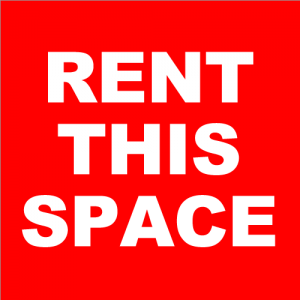 Recently, another option for property owners to generate additional income from their investment has emerged. Property owners with some spare or unused space (a spare room., and empty shed/garage, or even an unused driveway), are now able to rent out that space to earn 100s of extra dollars a month.
Recently, another option for property owners to generate additional income from their investment has emerged. Property owners with some spare or unused space (a spare room., and empty shed/garage, or even an unused driveway), are now able to rent out that space to earn 100s of extra dollars a month.
The idea of renting out spare or unused space for other purposes is a relatively new concept. Property owners are becoming aware that by renting out an unused garage or driveway for parking, or a spare garden shed or bedroom for storage, they can still generate an extra income, without the hassles of someone living in their space.
Online services such as FindaCarpark (which specialises in Parking spaces) and SpaceOut (which caters for a variety of different space rentals, including parking, storage, and even rural spaces for rent) make it easy for owners with space for rent, to advertise, and put them in touch with people in their own area looking for space.
These types of web based services are not usually free and there is typically a small listing fee (Findacarpark costs $15 and SpaceOut is currently just $6 to get started), but surely the potential to earn hundreds of dollars extra a month, for a space you are not using is worth giving it a go.
To find out more about how you can capitalise on making an extra income from your spare space, see www.findacarpark.com.au or www.spaceout.com.au – or do a Google search for “Rent Space Australia“
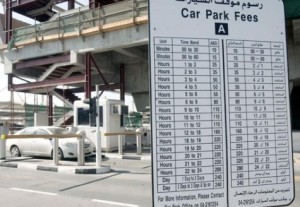 In an article in The Sunday Mail (Brisbane, 3rd October 2010), Amy McCosker and Anthony Templeton highlighted that:
In an article in The Sunday Mail (Brisbane, 3rd October 2010), Amy McCosker and Anthony Templeton highlighted that:
“Parking in Brisbane has become more than a headache, with some motorists slugged over $20 an hour for parking in the city”
As part of a nationwide investigation it has become clear that Brisbane parking rates are amongst the worst in Australia. Brisbane drivers wishing to park in the city pay on average $45 a day (that’s over $200 a week). Brisbane parking station fees are on a par with Melbourne (also $45 a day), and are more expensive than other Capital cities, except for Sydney where you can expect to pay up to $72 a day for parking. Darwin, is the cheapest capital city to park, with fees as low as $2.40 per day at some inner city carparks.
The table below provides an overview of the parking fees for some of Brisbane’s largest commercial carparks (as of Sep 2010) :
| Brisbane Car Park |
Hourly Rate |
Daily Rate |
| King George Square Carpark |
$12 |
$40 |
| Myer Centre Carpark |
$19 |
$43 |
| Wintergarden Carpark |
$24 |
$66* |
| Queens Plaza Carpark |
$20 |
$50* |
| Macarthur Central Carpark |
$12 |
$60* |
| Wilson Parking (Mary St) |
$21 |
$48 |
| Brisbane Domestic Airport |
$13 |
$40 |
| South Bank Convention Centre |
$14 |
$22 |
| Parklands Carpark |
$6 |
$36 |
* lost ticket fee
Another big “money grab” used by some of the commercial carpark operators is the policy of applying an extra fee if a motorist loses their ticket. In Brisbane you should expect to pay up to $66 for to park your car for the day if you can’t find your parking ticket.
Jim Kershaw a spokesman from the Royal Automobile Club of Queensland (RACQ) suggested that because of the high parking costs, many people parked outside the CBD and caught public transport, and said :
“In a perfect world there would be cheap parking for everyone”
SpaceOut – offers a cheap and convenient solution to motorists looking for alternatives to the high cost parking offered by commercial operators in city CBDs. People can often find a much cheaper parking option by renting an unused private parking space or garage. People living or working in (or near) the CBD, who have a parking space but no car, can also make a bit of extra cash by renting out their space .
There are many factors that can influence how much interest there is likely to be in your space – and hence how quickly you could rent it out, so we are not able to guarantee that you will rent out your space quickly. However, with a potential to earn hundreds of dollars a month – most people agree that the small listing fee is worth taking a chance.
 There are however some ways that you can increase the likelihood of renting out your space fast. Below We have outlined some of the main factors which can influence interest in your space – along with some hints on how you can maximise your chances of a quick rental.
There are however some ways that you can increase the likelihood of renting out your space fast. Below We have outlined some of the main factors which can influence interest in your space – along with some hints on how you can maximise your chances of a quick rental.
- Location – We have hundreds (and often thousands) of people every day, searching the site for many different types of spaces all over Australia. The majority of these visitors tend to come from high population areas (such as capital cities), but we also get many visitors from regional and even country areas. If your space is located in a regional or rural area, it may take a bit longer to rent out, but you are also likely to have less competition.
- Security – For most people renting private space, security is not the top priority, but they will want some assurance that the space has a reasonable level of security – and the more you can offer (and describe in the listing) the better
- Access – Although some renters may require little or no ongoing access to the space, many would require some level of access and the more flexible you can be with this the better.
- Type of Space – Some spaces could be used in a variety of ways – for example a garage could be used for storage or parking. You may like to consider creating separate listings for each type of usage – outlining the features and benefits (and also possibly changing the price) depending on the way the space might be used.
- Facilities – The more “advantages” or benefits you can describe in your space listing the more likely you will be to rent out your space quickly. These might be anything that differentiates your space from others and could be all sorts of things – e.g. free use of a trailer, 24×7 access with own key, owner able to give you a hand with heavy objects, cool dry environment – ideal for wine storage, can include a regular car wash for a small extra fee (for parking space), free parking available (for office space), etc…)
- Price – We normally recommend setting a price at 50% – 70% of the “commercial” rate. If you charge an unrealistically high price you are unlikely to get many enquiries, but if you set too low a price you might be missing out on some income. We generally suggest setting the price a little higher initially, but consider reducing it if you don’t get many enquiries. Keep in mind though, that a faster rental at a lower rate is likely to generate you more income than holding out for a higher price and perhaps earning nothing from the space while you are waiting.
- Demand – Some areas are very popular and spaces tend to get snapped up very quickly. In these areas, you can generally charge more for your space than in areas where demand is lower. Sometimes (but not always) you can identify high demand areas by a higher number of “space wanted” listings. If after a month or so you do not get many enquiries, it could mean that there is relatively little demand for the type of space you are offering in your area, so you could consider changing your listing description, reducing your price slightly, or even cancelling the listing.
Because there are just so many factors that can have an impact on how quickly you rent out your space, there can of course be no guarantee when your space will be leased. However there are few more simpler methods of generating handy cash flow, and most people really enjoy the process. By all means let us know of any other factors or strategies that you have found to be helpful in renting out your space.
Space is becoming an increasingly valuable commodity these days
and average Australians with a little spare space are cashing in on the demand
Australian home and business owners with extra or unused space are beginning to recognise that they can turn their spare space into a regular income – literally making money out of thin air. Services that specialise in linking people who need space with those who have space are becoming big business.
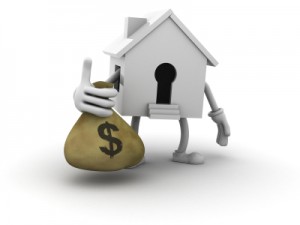 Services which provide a space brokerage or online listing service, such as those provided at www.spaceout.com.au, are becoming increasingly popular. These services make it simple to either advertise spare space OR search for spare space to rent.
Services which provide a space brokerage or online listing service, such as those provided at www.spaceout.com.au, are becoming increasingly popular. These services make it simple to either advertise spare space OR search for spare space to rent.
Although originally running as a free service, Spaceout recently introduced a small monthly subscription fee to help support the demand for a broader range of services – by expanding into office, parking, rural and commercial space in addition to the original storage space listings. Innovative online services like this have implemented easier navigation and mapping systems and invested in research to help owners set realistic prices for their spare space.
Director of Spaceout Andy Henderson says :
“The demand from our clients has been the driving force behind these developments and have turned what was a hobby, into a real business for us”.
“Space sharing” or “Private Storage” are industries that are experiencing rapid growth not just in Australia, but throughout the world. Businesses at the forefront of this trend – like Spaceout in Australia, SpareFoot in the USA and Your Parking Space in the UK – are all growing fast.
Spaceout members, Ian and Pat from Brisbane say:
“We recently rented out our spare parking space using Spaceout and now receive a regular passive income. We are happy to pay a small fee to advertise, if it makes the public more aware of it, and means we can rent out the space faster”
It seems that as time goes on, as the world gets more crowded, space becomes scarcer and increasingly valuable, businesses like SpaceOut will thrive. And remember, if you have some spare space, you too can cash in – simply go to www.spaceout.com.au – you’ll be surprised at just how easy it is.
Some of us are lucky enough to have some spare space at or around home –
it could turn into a nice little earner.
SpaceOut was featured in one of the cover articles from the September 2010 edition of Money Magazine – An Extra $200 a month renting out spare space.
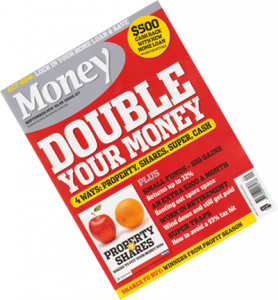 The Money Magazine “Smart Money” article outlines some of the many benefits of renting out your spare space and Quotes our Technical Director (Andy Henderson) :
The Money Magazine “Smart Money” article outlines some of the many benefits of renting out your spare space and Quotes our Technical Director (Andy Henderson) :
“Almost everyone has unused space around their home,apartment, or business – whether that’s your garage, your parking spot, your shed, a spare room or even your fridge – you’ll find there is someone out there willing to pay you to use it.”
Private rentals are increasingly becoming recognised as real alternatives to traditional self-storage facilities – and are often much more convenient, and significantly cheaper as well. Using online services such as www. SpaceOut.com.au, ordinary Australians can lease out their excess or unused space privately and make a little extra cash on the side.
“Many of us have got a spare bedroom or shed. More often than not it’s half-filled with our own junk, Why not do a reshuffle and rent it out?”
Private storage suits all types of people – particularly retirees and “empty nesters”, who wouldn’t dream of getting in a tenant (and sharing their house and lives with someone), but are very happy to store someones furniture in the spare room for a few months or more while the person is off travelling.
“Typically you are looking at between $100 and $200 a month for doing little more than putting stuff in a room and shutting the door”
If you’d like to read more about how you can make money from space, and turn your unused bedroom, shed or garage into an extra regular income, get out today and get your own copy of Money Magazine – September 2010.
From 1 September 2010 we have introduced a fee of $6 per month for Space for Rent listings (although Searches, Membership and Space Wanted listings are all still completely free).
 Spaceout has always been outstanding value (we think that it still is), and we have always wanted our service to be used by (and useful to) as many people as possible throughout Australia, so introducing a small fee is not a decision we have taken lightly. But after much debate and consideration we are confident that introducing a fee is the best way to ensure that SpaceOut and the unique service that we provide, continues to grow and improve in the future.
Spaceout has always been outstanding value (we think that it still is), and we have always wanted our service to be used by (and useful to) as many people as possible throughout Australia, so introducing a small fee is not a decision we have taken lightly. But after much debate and consideration we are confident that introducing a fee is the best way to ensure that SpaceOut and the unique service that we provide, continues to grow and improve in the future.
Why A Listing Fee?
Here are some of the reasons why we have decided to introduce a fee for creating a new Space for Rent listing :
- Is it Really Free ? –
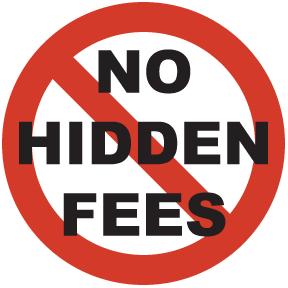 this was by far the question that we got asked most often. People were surprised that we were offering Spaceout as a free service in the first place, and even after we explained that it really was free, many were still suspicious and wondered what the catch was (there wasn’t one!!). By introducing a fee, we recognise that some people may no longer list with us, but our market research suggest that even as a paid service SpaceOut offers great value (the possibility of earning $200 or more a month, easily outweighs the listing costs), and that in fact, many people are likely to be more comfortable paying a fee.
this was by far the question that we got asked most often. People were surprised that we were offering Spaceout as a free service in the first place, and even after we explained that it really was free, many were still suspicious and wondered what the catch was (there wasn’t one!!). By introducing a fee, we recognise that some people may no longer list with us, but our market research suggest that even as a paid service SpaceOut offers great value (the possibility of earning $200 or more a month, easily outweighs the listing costs), and that in fact, many people are likely to be more comfortable paying a fee.
- Improving the Listing Standard – we’ve noticed that the listings some members create are very basic – often containing very little (or no) additional information about the space itself. This makes it harder for people to decide whether or not the space may be suit their needs. Because the listing was free, some members seemed to feel that they shouldn’t bother about putting much effort into their listing (probably not realising that more detailed listings tend to get rented out faster). We believe that the small fee will encourage people to spend a little more time preparing their listings – making them more detailed and informative – which is better for everyone.
- Keeping it Fresh – Free listings provide no real incentive for the owner to flag their space as leased once they have rented it out. Some people members just let their listing expire at the end of three months – even though they have leased out the space. This meant that they would get extra “contact requests” – which were sometimes ignored, and sometimes when people enquired about a space they were told that it was no longer available. The monthly subscription provides an incentive for space owners to be a bit more proactive about managing their listing – which leads to a better experience for people looking for space, as they are less likely to find a space which is no longer actually available.
- Ongoing development – creating and running an online service like SpaceOut is not a cheap exercise. We get suggestions and requests from members for improvements to the service (thanks very much for those), and have lots of plans or how we can improve and expand the functionality of the site. Generating some sort of income from the site means that we will have more funds that we can put towards improvements – and will be able to offer additional functionality and features faster (and better) than we would have been able to otherwise.
How is the fee applied?
Once we had agreed that a fee was necessary, we needed to look at the best way to apply this. We considered quite a few different approaches, including
- a one off fee, to allow listing until the space had been rented (e.g. $50 for the life of the listing),
- a commission (a percentage of the space rental rate) once the space had been successfully leased (e.g. 20% of the monthly rental rate),
- a set price for a set listing period (e.g. $30 for 3 months),
- a sliding fee based on the advertised monthly space rental,
… but decided that a simple fixed price monthly subscription was the most reasonable and best value approach.
Monthly Subscription via Paypal
A monthly subscription allows us to charge a relatively small fee, and means that owners only need to pay for their listing until they rent out their space – they don’t have to pay for a big chunk of time that they may not even need.
 We have decided to use Paypal (probably the world’s most popular payment system), to manage the subscription process as this allows our members to have complete control of their own subscription and lets them review and update (or cancel) their subscription whenever they wish. This means that members will need to register with Paypal (if they don’t already have an account), but provides them with greater flexibility in payment methods, and guarantees safe and secure payments.
We have decided to use Paypal (probably the world’s most popular payment system), to manage the subscription process as this allows our members to have complete control of their own subscription and lets them review and update (or cancel) their subscription whenever they wish. This means that members will need to register with Paypal (if they don’t already have an account), but provides them with greater flexibility in payment methods, and guarantees safe and secure payments.
When a new listing is created, as the final part of the listing process, owners will be directed to Paypal to confirm the subscription. An initial payment will be made, and the listing will be activated, then, each month (on the anniversary of the original listing start date) another payment will automatically be applied, and the listing will automatically be extended for another month.
The subscription can be cancelled at any time (via the members Paypal account) – for example once the space has been leased out, or if it is decided that the listing is no longer required. Once a subscription has been cancelled, the listing will remain active until the end of the current month’s listing period ( the status can still be set to Leased or Do Not Display to stop it showing up on SpaceOut).
Members will receive email notification when the subscription (and listing) is created, and monthly notification each time a payment is made.
You can find out more about the current space listing fees, or read more details about how the payment process works. We would also love to get your feedback on SpaceOut subscription, so if you’ve got anything you’d like us to know, please feel free to contact us.
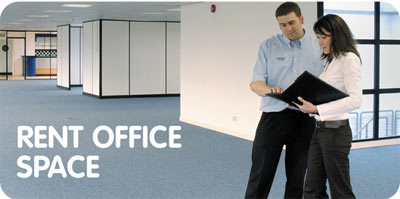 One of the biggest decisions many small businesses inevitably face as they grow, is whether to buy or lease their business premises and office space. Although buying and owning your own office space may have some advantages, in these times of economic uncertainty and with steadily increasing property prices, buying can be prohibitive for many business owners.
One of the biggest decisions many small businesses inevitably face as they grow, is whether to buy or lease their business premises and office space. Although buying and owning your own office space may have some advantages, in these times of economic uncertainty and with steadily increasing property prices, buying can be prohibitive for many business owners.
Instead of buying a commercial property though, renting office space is increasingly becoming the solution of choice for many small businesses. Leasing office space can be great option for many different reasons. We’ve collated a list of 5 advantages renting office space has over buying :
- Flexible – Renting office space allows greater flexibility and doesn’t usually commit you to long term decisions. If you are uncertain of the future growth of your business choosing to buy office space can be a very scary prospect. Short to medium term leasing arrangements allow you to could choose a space that meets your current needs and provides greater flexibility to expand (or reduce) your space needs in the future.
- Try it Out – choosing to rent office space – particularly for a new business, or in a new area – allows you to “test the water” and check to see how the business performs in that particular area or environment. If things don’t happen to work out as expected it’s generally a good deal easier to break a lease than it is to sell a property.
- Mobility – Choosing to rent an office space means that you are more mobile. You will not be tied down to a particular location and will find it a good deal easier to move premises if and when you choose.
- Cost – Renting Office space is almost certainly going to be significantly cheaper than buying it. You will also not have the responsibilities of all the other expenses associated with owning a property. Property maintenance can add a significant overheads for property owners, whereas if you are renting the space this will be the landlords responsibility.
- Responsibility – Running a business is tough enough without having to worry about all the extra issues associated with property ownership. Renting your space means you can focus on running your business.
The primary aim of any business is to get a reasonable return on their investment – with as little as possible cost, or effort. Small business owners in particular often struggle with the logistics of the day to day management of their business. Renting office space instead of buying it is a cheaper, safer, simpler, and more flexible option for most businesses.
Whether you are looking for office space to rent, or are interested in renting out surplus space in your commercial premises, SpaceOut can help you make the choice easier.
 And this figure is considered to be just a portion of the repossessions actually taking place as many cases don’t appear before court, with many property owners negotiating with banks to put their property up for sale to repay the debt.
And this figure is considered to be just a portion of the repossessions actually taking place as many cases don’t appear before court, with many property owners negotiating with banks to put their property up for sale to repay the debt.